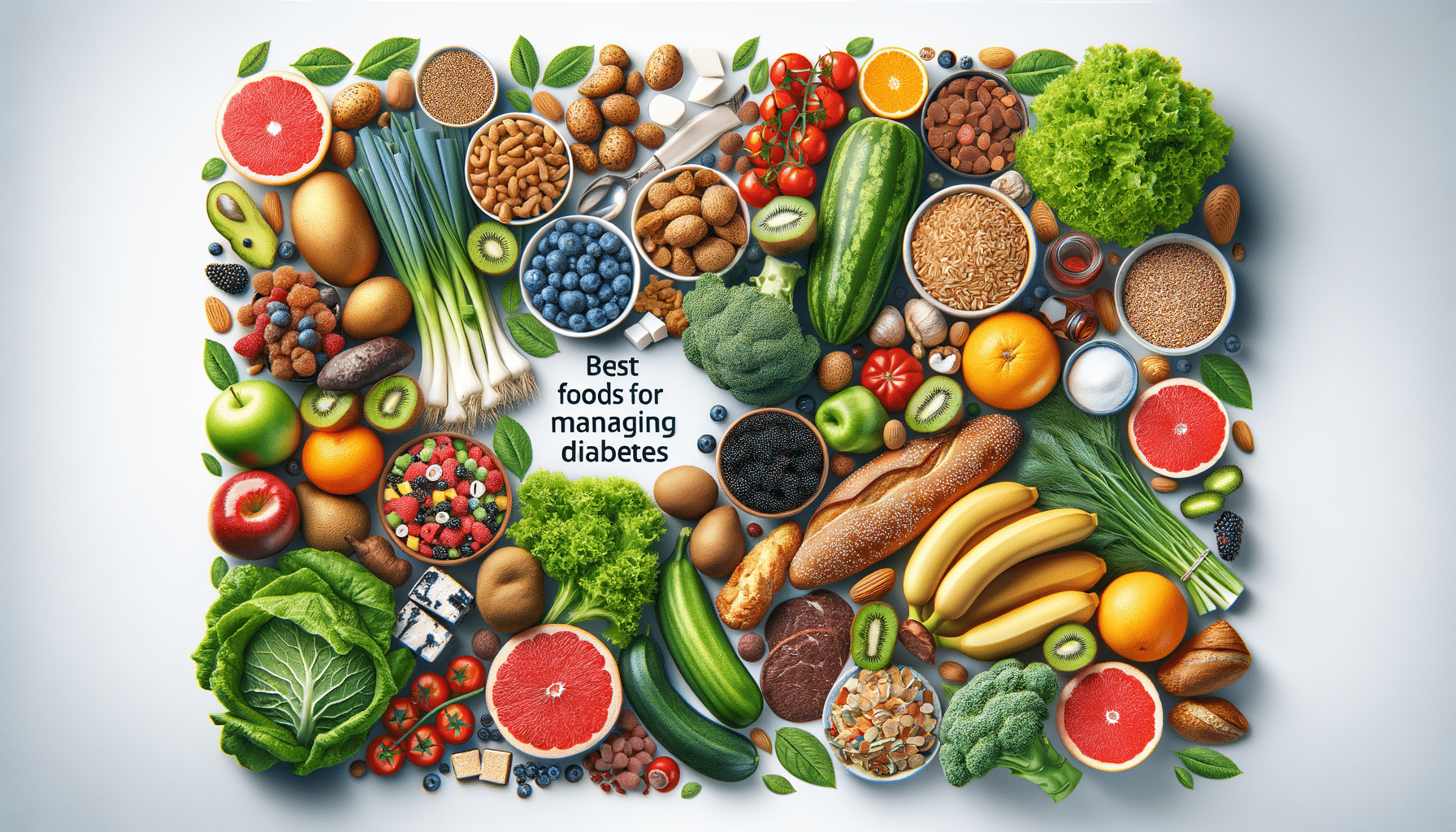
Best Foods For Managing Diabetes
The Importance of Diet in Diabetes Management
Diabetes is a chronic condition that affects millions of people worldwide. Managing diabetes effectively is crucial for maintaining overall health and preventing complications. One of the most important aspects of diabetes management is diet. A well-balanced diet can help control blood sugar levels, maintain a healthy weight, and reduce the risk of heart disease and other complications associated with diabetes. By making informed food choices, individuals with diabetes can significantly improve their quality of life.
For those managing diabetes, it is essential to focus on foods that have a low glycemic index (GI). These foods release glucose more slowly and steadily, which helps maintain stable blood sugar levels. Additionally, incorporating a variety of nutrient-rich foods can provide the necessary vitamins and minerals to support overall health.
Some key dietary considerations for managing diabetes include:
- Choosing whole grains over refined grains
- Incorporating plenty of fruits and vegetables
- Limiting sugar and processed foods
- Monitoring portion sizes
By following these guidelines, individuals can create a diabetes-friendly diet that supports their health goals.
Incorporating Vegetables into Your Diet
Vegetables are an essential component of a diabetes-friendly diet. They are low in calories and carbohydrates, making them an excellent choice for those looking to manage their blood sugar levels. Additionally, vegetables are packed with vitamins, minerals, and fiber, all of which contribute to overall health.
Some of the most beneficial vegetables for individuals with diabetes include leafy greens, such as spinach and kale, which are rich in antioxidants and nutrients. Cruciferous vegetables like broccoli, cauliflower, and Brussels sprouts are also excellent choices due to their high fiber content and low glycemic index.
To incorporate more vegetables into your diet, consider the following tips:
- Add a side salad to your meals
- Include vegetables in soups and stews
- Roast or grill vegetables for a flavorful side dish
- Experiment with vegetable-based recipes, such as zucchini noodles or cauliflower rice
By making vegetables a staple in your diet, you can enjoy a wide range of flavors and nutrients that support diabetes management.
The Role of Whole Grains in Blood Sugar Control
Whole grains are an important part of a balanced diet for individuals with diabetes. Unlike refined grains, whole grains contain the entire grain kernel, which includes the bran, germ, and endosperm. This means they are higher in fiber and other essential nutrients, which can help regulate blood sugar levels and improve digestive health.
Some popular whole grains that can be included in a diabetes-friendly diet are brown rice, quinoa, oats, and whole wheat bread. These grains have a lower glycemic index compared to their refined counterparts, meaning they cause a slower, more gradual rise in blood sugar levels.
To incorporate more whole grains into your diet, try these strategies:
- Choose whole grain bread and pasta over white varieties
- Start your day with a bowl of oatmeal
- Experiment with different grains, such as quinoa or barley, in salads and side dishes
- Substitute white rice with brown rice or wild rice
By making whole grains a regular part of your meals, you can enjoy their health benefits while effectively managing your diabetes.
Benefits of Lean Proteins in a Diabetes-Friendly Diet
Protein is an essential nutrient that plays a vital role in maintaining muscle mass, supporting immune function, and promoting overall health. For individuals with diabetes, choosing lean protein sources is particularly important, as they are lower in saturated fat and calories, helping to maintain a healthy weight and support heart health.
Some excellent lean protein options include poultry, fish, beans, and legumes. These foods provide high-quality protein without the added fats found in some other protein sources. Additionally, fish, particularly fatty fish like salmon and mackerel, are rich in omega-3 fatty acids, which have been shown to support heart health.
To incorporate more lean proteins into your diet, consider the following tips:
- Opt for grilled or baked chicken or turkey instead of fried
- Include fish in your meals at least twice a week
- Add beans or lentils to soups, stews, and salads
- Choose low-fat dairy products, such as yogurt or cottage cheese
By focusing on lean protein sources, you can enjoy their nutritional benefits while managing your diabetes effectively.
Smart Snacking for Blood Sugar Management
Snacking can be a helpful tool for managing blood sugar levels, provided that the snacks are chosen wisely. For individuals with diabetes, it is important to select snacks that are low in sugar and high in fiber and protein, as these nutrients help maintain stable blood sugar levels and keep you feeling full longer.
Some smart snack options include nuts, seeds, Greek yogurt, and fresh fruit. These snacks provide a balance of carbohydrates, protein, and healthy fats, making them ideal for blood sugar control. Additionally, they are convenient and easy to incorporate into a busy lifestyle.
Here are some tips for smart snacking:
- Keep portion sizes small to avoid overconsumption
- Choose whole, unprocessed snacks whenever possible
- Pair a carbohydrate-rich snack with a protein source for balanced nutrition
- Plan your snacks ahead of time to prevent impulse eating
By making thoughtful snack choices, you can effectively manage your blood sugar levels and support your overall health.


